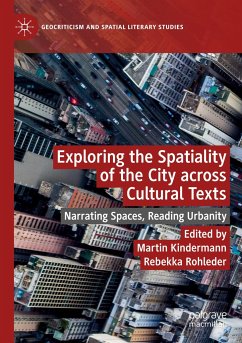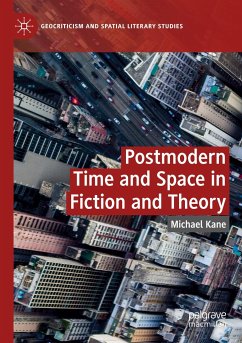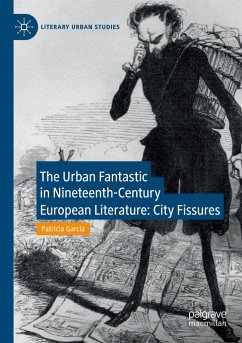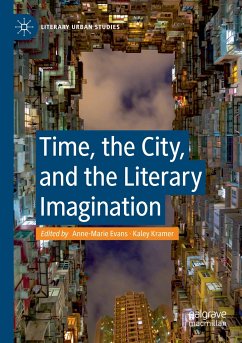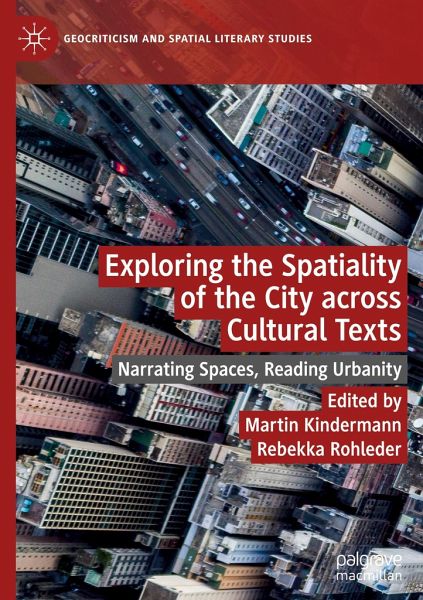
Exploring the Spatiality of the City across Cultural Texts
Narrating Spaces, Reading Urbanity
Herausgegeben: Kindermann, Martin; Rohleder, Rebekka

PAYBACK Punkte
49 °P sammeln!
Exploring the Spatiality of the City across Cultural Texts: Narrating Spaces, Reading Urbanity explores the narrative formations of urbanity from an interdisciplinary perspective. Within the framework of the "spatial turn," contributors from disciplines ranging from geography and history to literary and media studies theorize narrative constructions of the city and cities, and analyze relevant examples from a variety of discourses, media, and cities. Subdivided into six sections, the book explores the interactions of city and text-as well as other media-and the conflicting narratives that aris...
Exploring the Spatiality of the City across Cultural Texts: Narrating Spaces, Reading Urbanity explores the narrative formations of urbanity from an interdisciplinary perspective. Within the framework of the "spatial turn," contributors from disciplines ranging from geography and history to literary and media studies theorize narrative constructions of the city and cities, and analyze relevant examples from a variety of discourses, media, and cities. Subdivided into six sections, the book explores the interactions of city and text-as well as other media-and the conflicting narratives that arise in these interactions. Offering case studies that discuss specific aspects of the narrative construction of Berlin and London, the text also considers narratives of urban discontinuity and their theoretical implications. Ultimately, this volume captures the narratological, artistic, material, social, and performative possibilities inherent in spatial representations of the city.



